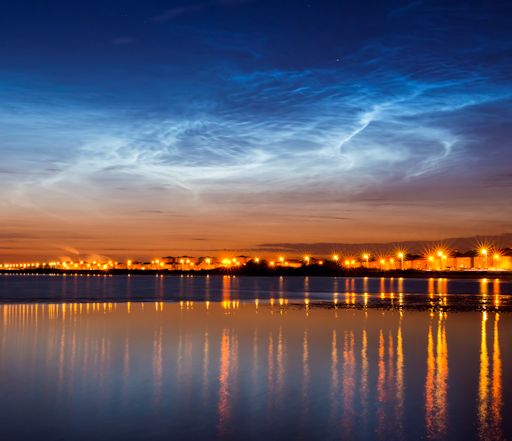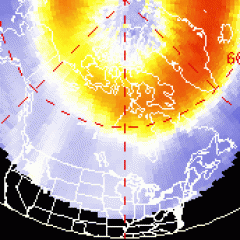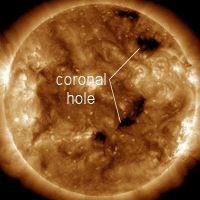STORM WARNING: NOAA estimates a 60% chance of polar geomagnetic storms on June 9th when a CME is expected to deliver a glancing blow to Earth's magnetic field. High-latitude sky watchers should be alert for auroras. Aurora alerts: text, voice.
NOCTILUCENT CLOUDS: Researchers working with data from NASA's AIM spacecraft have announced that noctilucent clouds (NLCs) are behaving strangely. Boosted by changing "teleconnections" in Earth's atmosphere, the summertime clouds appeared earlier this year than ever before, setting the stage for an unusually good season of NLCs. "Unusually good" certainly describes the apparition this morning over Troon, Ayrshire, Scotland:
"It was an amazing display," says photographer Mark Ferrier. "The clouds appeared after sunset on June 8th and lasted straight through to sunrise on June 9th."
High latitude sky watchers should be alert for NLCs in the evenings ahead. In recent years they have been sighted as far south as Utah, Colorado, and Nebraska. Observing tips: Look west 30 to 60 minutes after sunset when the sun has dipped 6o to 16o below the horizon. If you see luminous blue-white tendrils spreading across the sky, you've probably spotted a noctilucent cloud.

![]()
Solar wind
speed: 390.0 km/sec
density: 6.4 protons/cm3
explanation | more data
Updated: Today at 1536 UT
![]()
X-ray Solar Flares
6-hr max: B4 1018 UT Jun09
24-hr: C3 0208 UT Jun09
explanation | more data
Updated: Today at: 1500 UT
![]()
![]()
![]()
Daily Sun: 09 Jun 13
![]()
![]()
Sunspot AR1765 has a beta-gamma magnetic field that harbors energy for M-class solar flares. Credit: SDO/HMI
![]()
![]()
![]()
Sunspot number: 27
What is the sunspot number?
Updated 08 Jun 2013
Spotless Days
Current Stretch: 0 days
2013 total: 0 days (0%)
2012 total: 0 days (0%)
2011 total: 2 days (<1%)
2010 total: 51 days (14%)
2009 total: 260 days (71%)
Since 2004: 821 days
Typical Solar Min: 486 days
Update 08 Jun 2013
The Radio Sun
10.7 cm flux: 110 sfu
explanation | more data
Updated 08 Jun 2013
![]()
![]()
![]()
Current Auroral Oval:
![]()
![]()
Switch to: Europe, USA, New Zealand, Antarctica
Credit: NOAA/POES
![]()
![]()
![]()
Planetary K-index
Now: Kp= 3 quiet
24-hr max: Kp= 3 quiet
explanation | more data
![]()
Interplanetary Mag. Field
Btotal: 6.2 nT
Bz: 3.3 nT south
explanation | more data
Updated: Today at 1536 UT
![]()
![]()
![]()
Coronal Holes: 07 Jun 13
![]()
![]()
Solar wind flowing from this coronal hole should hit Earth's magnetic field on June 9-10. Credit: SDO/AIA.





